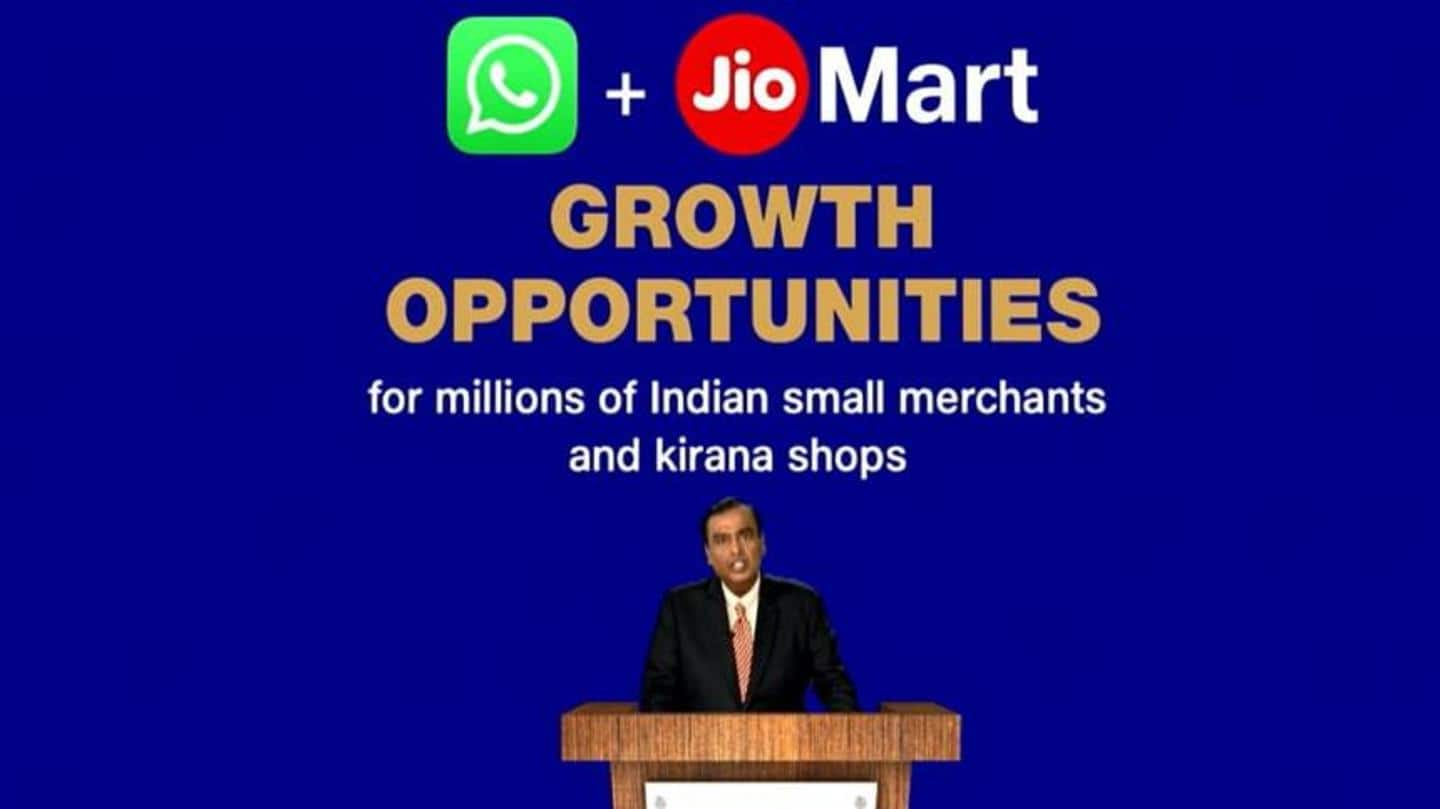
Soon, Reliance may let you order groceries from WhatsApp
What's the story
Mukesh Ambani-led Reliance Retail Ltd. is reportedly working toward embedding JioMart into WhatsApp within the next six months. The move will allow 400-million Indian WhatsApp users to address their grocery needs from neighboring outlets through Ambani's hyperlocal e-commerce platform.
The revelation was made by the financial publication Mint based on a tip-off from two Reliance officials on the condition of anonymity.
Deeper integration
JioMart integration with WhatsApp could go beyond simple API integration
Although Reliance itself didn't officially comment on it, WhatsApp told Mint that it plans to bring "millions of small businesses and the customers they serve" into the e-commerce space.
WhatsApp already has the API (back-end infrastructure) integration to allow businesses to showcase their catalogue to customers within the app. From the looks of it, JioMart's WhatsApp integration will be far deeper.
WhatsApp Pay
WhatsApp partnership will allow users to bypass shopping apps altogether
This is Reliance's attempt to take a slice of the online retail pie that's currently dominated by Amazon and Flipkart. It had raised $26 billion for its digital business from the likes of Google and Facebook, in order to take on the e-commerce incumbents.
The WhatsApp integration will allow users to bypass shopping apps altogether to order grocery essentials right from the messaging platform.
Strictly business
This gives credence to WhatsApp "business-only" clarification on privacy policy
On a related note, WhatsApp has faced flak for its recent privacy policy update which saw a mass exodus of users to rival Telegram and Signal apps.
The platform has since extended the ToS acceptance deadline, while stating that the data-sharing clause is restricted to business chats.
This revelation gives credence to WhatsApp's claims, because placing orders through WhatsApp will necessitate sharing of data.
Do you know?
What is JioMart?
JioMart is Reliance's hyperlocal grocery service connecting users with neighborhood kirana stores. Launched in May, the service was initially limited to select cities, but it has been expanding its reach rapidly. It allows users quick access to fruits and vegetables, packaged food, and household essentials.